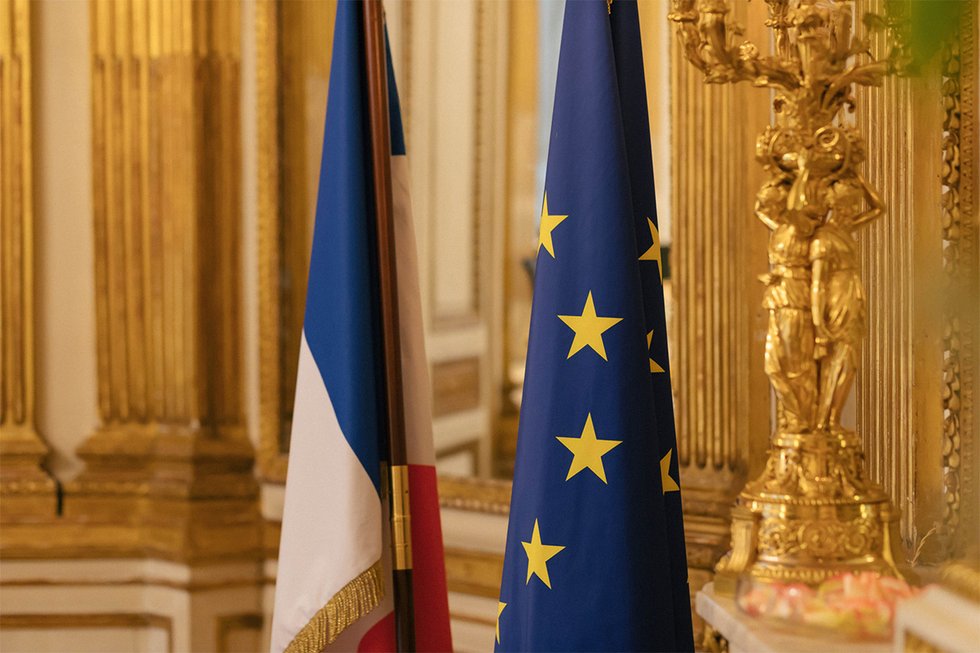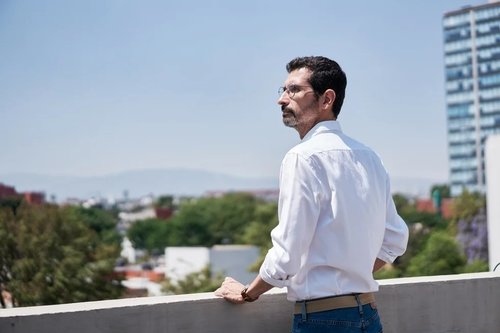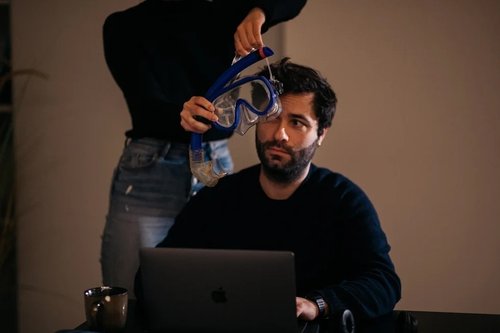Which European Countries Have the Best Workers’ Rights?
Jun 17, 2019
6 mins

Maternity leave, paid leave, minimum wage, pension, training, sick leave, quality of life at work… Billions of euros are spent on employment benefits across Europe, but who comes top (and bottom) of the class? Welcome to the Jungle walks you through workers’ rights in the Continent and the UK.
The European Union (EU) sets minimum standards
There is no EU-wide social security scheme: Each member state has maintained its own national system and individual schemes. European legislation simply coordinates these national systems in order to safeguard free movement and free trade. While no single rule is applied, the EU does set minimum requirements in many areas that must be upheld, and is committed to improving working conditions across the Continent and the UK. European welfare systems have a sound reputation worldwide and some of them are even used as models to follow.
“While no single rule is applied, the EU does set minimum requirements in many areas that must be upheld, and is committed to improving working conditions across the Continent and the UK”
Social rights: the best and worst performers
Two recent studies by Glassdoor and Deloitte compared social security schemes across Europe (14 European countries were analyzed by the former, 26 by the latter). In most European countries, all social rights are guaranteed, but the application of these rights may vary between countries. Overall, Denmark, France, and Spain are recognized as the most generous, while Ireland, the UK, and Switzerland have more restricted rights.
“In most European countries, all social rights are guaranteed, but the application of these rights may vary between countries”
Maternity leave
The EU guarantees minimum maternity leave of 14 weeks. But the level of remuneration and maximum duration of this leave varies significantly. In this category, the UK is a generous country, providing 52 weeks of leave, 39 of which are paid at 90% of previous earnings for the first six weeks (and then up to €160 per week thereafter). Ireland follows with 42 weeks, 26 of which are paid at a flat rate of €188 per week. Germany, Spain, the Netherlands, France, Austria, and Denmark more or less offer the statutory 14 weeks at full pay.
Paternity leave
Paternity leave is not regulated by the EU. There are large differences between countries. At one end you have Finland, which gives 45 days’ paid leave to new fathers, Spain (15), France (11), followed by Belgium, Denmark, Sweden, and the UK, which allow 10 days. At the other end, the Netherlands now offers five days and Italy only four, while Austria, Germany, and Switzerland don’t allow for any paid paternity leave at all.
Parental leave
The EU ensures that every parent has the right to take leave to look after their children up to the age of eight for a minimum of four months. However, the amount of this time that is paid is left unspecified. France and Germany allow up to 156 weeks (three years) of parental leave, with the former paying each parent just under €600 per month for six months (26 weeks), or if the parents have two or more children, until the child is three years old. However, Switzerland does not offer any parental leave, while Belgium grants 17 weeks’ leave at €800 per month, and the UK and Ireland grant only 18 weeks’ unpaid leave.
“The amount paid during parental leave is not specified by the EU”
Paid holidays
The EU gives citizens the right to a minimum of four weeks’ paid leave per year, not counting public holidays. The most generous places for paid leave are Sweden, France, and Denmark (five weeks). What’s more, the number of public holidays varies from one country to another. The Spanish calendar has the most with 14, followed by Austria (13), Italy (12), Sweden, Finland and Greece (11), and France (10), through to Switzerland, which has only four public holidays per year.
Sick leave
Sick-leave benefits are not regulated and differ greatly among European countries. The Netherlands offers the most benefits, where workers may be absent for 104 weeks (two years) while still receiving 70% of their salary. In contrast, sick pay is given for just 28 weeks in the UK (at about €100 per week) and 26 weeks in France (paid at 50%).
Unemployment benefits
Out of the European countries, both the size of unemployment benefits and the length of time covered can vary. By and large, Europe is very generous with this kind of aid. Those at the top of the list include Denmark, where 90% of workers’ salaries are paid for up to 104 weeks, and Belgium, which grants unemployment benefit for an unlimited period, starting at 65% for the first 13 weeks.The least-protected workers are those of Ireland and the UK, the latter of which provides benefits of up to €82 (depending on age) per week for up to 26 weeks.
Minimum wage and wage inequality
Wage inequality is a key problem that Europe has been grappling with since the financial crisis of 2008. The gap is particularly pronounced in Portugal, Romania, and Italy. At the start of 2019, the monthly minimum wage exceeded €1,000 in only eight European countries (Spain, the UK, France, Germany, Belgium, the Netherlands, Ireland, and Luxembourg). Luxembourg has the highest minimum wage at €2,071, while Bulgaria has the lowest at €286.
Gender gap
While gender inequalities are on the decline in Europe, wide disparities still remain. The rate of male and female higher-education graduates in Europe is a key indicator. According to a Eurostat study from 2017, the average is 29.9% for women, against 25.9% for men, a 4% gap. This divide varies greatly from country to country, ranging from 11% in Bulgaria and 4.7% in France to 2.1% in Luxembourg.
Retirement and pension
Most EU countries have raised the minimum retirement age to 65. Latvia is currently the only country that deviates from this, with a minimum retirement age of 63. The monthly gross pension allowance ranges from almost €8,000 at the high end in Luxembourg, down to the lowest level of just over €400 in Malta. Spain, Greece, Belgium, and Switzerland pay their citizens a pension of more than €2,000 gross.
“The monthly gross pension allowance ranges from almost €8,000 at the high end in Luxembourg, down to the lowest level of just over €400 in Malta”
Quality of life in the workplace
In a 2018 study by The Work Force View in Europe, a survey conducted by ADP of almost 10,000 workers in France, Germany, Italy, the Netherlands, Poland, Spain, Switzerland, and the UK, about one in five respondents (18%) stated that they experience stress every day, while three in ten (30%) felt so stressed that they were planning to change jobs. The prize for the most-stressed country goes to Poland, where more than a quarter (27%) of employees said they suffer from stress on a daily basis, closely followed by the French and the British (20%). The Netherlands are the least stressed, with only one employee in ten affected (10%). But at the time of the survey all countries were experiencing economic growth and falling unemployment. Across the Continent and the UK, 79% of respondents stated that they were optimistic. Once again, Dutch employees were the most optimistic (85%), while French workers came last (74%).
“About one in five respondents (18%) stated that they experience stress every day, while three in ten (30%) felt so stressed that they were planning to change jobs”
France, the champion of social spending
“Solidarity is not a cost but an investment to achieve a more resilient society” —Louis Gallois, chairman of PSA Group’s Supervisory Board
According to a study by the French Directorate for Research, Studies, Evaluation, and Statistics (DREES) on the amount and distribution of aid for health and old age in France, published on June 21, 2018, France is the European—and probably the world—champion when it comes to social-benefit spending. For example, in 2016, France granted more than €714 billion in social benefits—in other words, 32.1% of its GDP—compared with an average of 27.5% across the 28 countries of the EU. The highest spending is on health and retirement, totaling 81% of welfare expenditure, followed by family benefits (8%) and employment benefits (6%). As mentioned, according to the Glassdoor report, which was carried out in partnership with the Organization for Economic Co-operation and Development (OECD), France is the second most generous country in terms of social-employment benefits (paid leave, maternity, paternity and parental leave, sick leave, and unemployment benefits) after Denmark.
“France is the European—and probably the world—champion when it comes to social-benefit spending”
A model for Eastern and Southern Europe
Thus, social rights in Europe are not the same in all 28 EU states. The most generous systems are seen in northern Europe. The gap between the richest 20% and poorest 20% is widest in Mediterranean Europe, while the lowest incomes are found in Eastern Europe. Paradoxically, it is in these countries where the most citizens associate the EU with the idea of social protection. According to the Eurobarometer survey conducted in April 2018 with 27,601 citizens from 28 European countries, 60% of respondents believed that their country joining the EU was a good thing, and 32% thought that welfare should have been the focus of the last European elections (May 2019). So, the “European social model” is expanding and gradually being integrated across the 28 countries.
“The most generous systems are seen in northern Europe. The gap between the richest 20% and poorest 20% is widest in Mediterranean Europe, while the lowest incomes are found in Eastern Europe”
Translated by Matthew Docherty
Follow Welcome to the Jungle on Facebook and sign up for our newsletter to receive our articles every week

More inspiration: International

Germany trials the four-day workweek: “Free time is invaluable”
Germany's four-day workweek trial may be the solution to greater productivity, worker satisfaction, and work-life balance.
Jun 10, 2024

The Fuckup Nights movement: The art of sharing failures on stage
Discover the global movement fostering learning, community, and authenticity with Fuckup Nights co-founder Pepe Villatoro.
May 23, 2024

Why is Europe so eager to attract foreign workers?
Looking for work abroad? Now might be your chance. The European Union is facing labor shortages, prompting efforts to attract foreign workers.
May 22, 2024

What if working less isn't the answer?
For sociologist and researcher Julia Posca, "It's not just about working less, it’s mainly about working better."
Apr 10, 2024

Hangover leave? Pawternity PTO? Explore the world’s quirkiest paid leave initiatives
Need time off for your birthday, a breakup or simply a lack of motivation? In some countries, it's possible.
Apr 04, 2024
The newsletter that does the job
Want to keep up with the latest articles? Twice a week you can receive stories, jobs, and tips in your inbox.

Looking for your next job?
Over 200,000 people have found a job with Welcome to the Jungle.
Explore jobs